

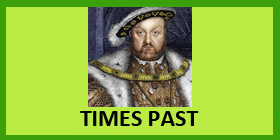
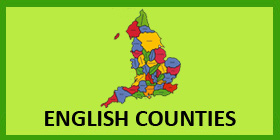

Back to the Northumberland Page

- The Royal Connection
- Northumberland Eats
- Owlbut's Birdwatch
- Northumberland VIPs
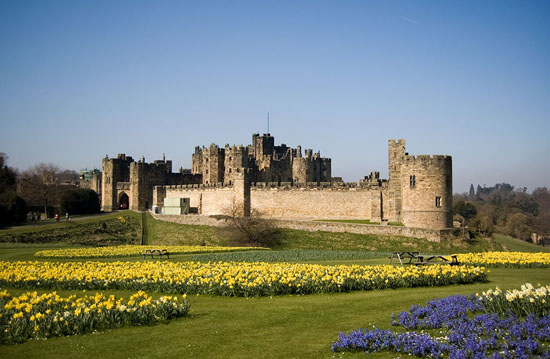 I suppose it's only natural that
many of our royal connections involve castles. After all, that is where royalty used to live and still do. Alnwick castle (pronounced Annick) is the second
largest inhabited castle in England. Windsor castle is the biggest. It is the home of the 12th Duke of Northumberland who, together with his family, live in a
part of the castle, which was first built in Norman times but has been renovated many times since then. It is a Grade 1 listed building. You, young people, may
know more about it than you think, but more later.
I suppose it's only natural that
many of our royal connections involve castles. After all, that is where royalty used to live and still do. Alnwick castle (pronounced Annick) is the second
largest inhabited castle in England. Windsor castle is the biggest. It is the home of the 12th Duke of Northumberland who, together with his family, live in a
part of the castle, which was first built in Norman times but has been renovated many times since then. It is a Grade 1 listed building. You, young people, may
know more about it than you think, but more later.
The castle was held by Lancastrian forces for a time during the Wars of the Roses. The Earl of Warwick, the well-known kingmaker, received the
surrender of the castle in 1464 on behalf of Edward IV.
The castle is open to the public in summer and, in 2006, was the tenth most-visited stately home in England. However since then numbers have
increased because, and this is where you young people may recognise the castle, it was used as the exterior and interior of Hogwarts in the Harry Potter films.
The Outer Bailey was where Harry and friends learned to fly broomsticks and also the rules of Quidditch. It was in the Inner Bailey that Harry and Ron crashed the
Weasley family's flying car and the Lion Arch was the way in and out of Hogwarts.
Many other film and TV programmes have been filmed in and around the castle including Downton Abbey, Alnwick Castle was Brancaster Castle, Transformers
The Last Knight, Flog It and the Antiques Road Show. The gardens within the castle are also well worth a visit.
![]() Back to the top
Back to the top
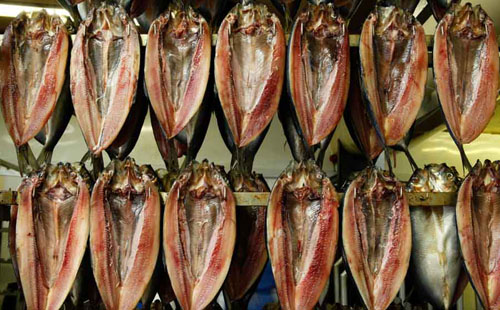 Craster is a small village on the coast
of Northumberland. I've been there three times in my life. The first thing you notice when you reach the village is the smell of smoke and you can see plumes of white
smoke coming out of one of the buildings. No, they haven't elected a new pope, Craster is the home of the world famous Craster kipper.
Craster is a small village on the coast
of Northumberland. I've been there three times in my life. The first thing you notice when you reach the village is the smell of smoke and you can see plumes of white
smoke coming out of one of the buildings. No, they haven't elected a new pope, Craster is the home of the world famous Craster kipper.
A kipper is a herring that has been split open, cleaned, salted and then hung over smouldering wood chips to cure in a smokehouse. To be a Craster
kipper, rather obviously, the smokehouse must be in Craster and, as far as I can find out, there is only one such place remaining. That is the 100-year-old
smokehouses of L Robson and Sons.
The smoking takes place for sixteen hours and the wood chips are usually oak or white wood. A kipper still looks like a fish and its tan colour
comes from the oak smoke. People say that comparing a Craster kipper with any other kipper is like comparing a fillet steak with a burger. Craster kippers are
often described as the best although, taste being like beauty but in the mouth of the beholder, some disagree.
Craster kippers are usually grilled and often served for breakfast, sometimes with a poached egg on top. They can also be eaten for tea. It is
said they are a particular favourite of our Royal family. I enjoyed mine each time I visited the village.
![]() Back to the top
Back to the top
The cormorant is a large waterbird. It has a long neck which almost makes it look like a primitive reptile. Just like the one
in my picture, the cormorant can often be seen standing with its wings held out to dry. They eat fish and are, in fact, wonderful at catching their prey. There are
about 10,000 breeding pairs in the UK and over 40,000 cormorants winter here. The cormorant has black, brown and white feathers, brown legs and a long, hooked, black
and yellow, powerful beak of medium thickness. Young birds have brown, grey and white feathers.
The cormorant can be between 80 and 100 cms in length, has a wingspan of between 130 and 160 cms and weighs between 2 and 2.5 kg. The cormorant can be
found around the coast on rocky shores and estuaries but it is also now being seen inland at reservoirs, lakes and gravel pits.
It is sometimes difficult to tell the cormorant from its near relative, the shag, but not for you because I am going to tell you the differences. The
cormorant has a thicker beak and it has more yellow around its face. Shags sometimes come inland but usually only on their own while cormorants are often seen in
groups inland. The cormorant also has a less steep angle of its forehead where it joins the beak. Now you know.
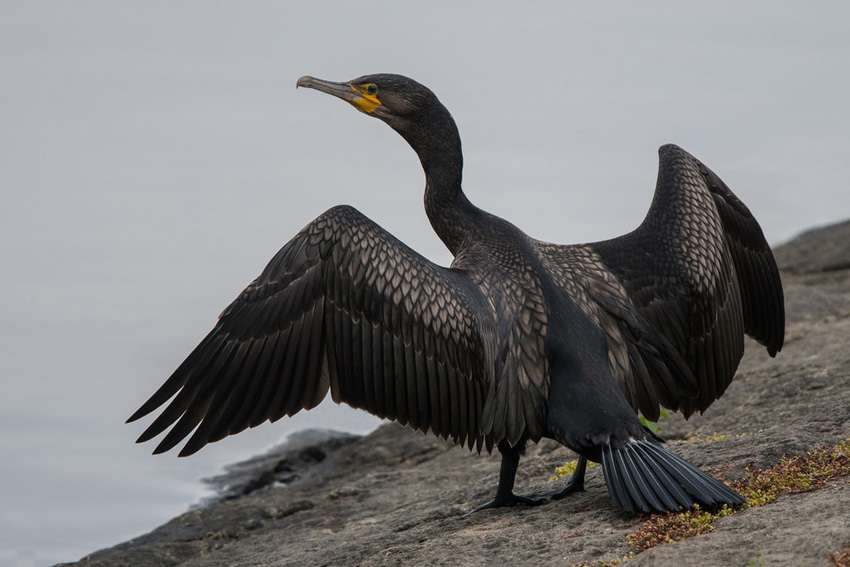
Seven random people who were born in Northumberland in the last 100 years:-
Sir Bobby Charlton (Footballer - hero of mine), Tom Graveney (Cricketer - hero of mine), Hermione Hammond (Artist), Robson Green, (Actor/Presenter),
Alexander Armstrong (Actor/Singer/Comedian/TV Presenter), Vanessa Raw (Triathlete) and the late Jack Charlton (Footballer).
![]() Back to the top
Back to the top

